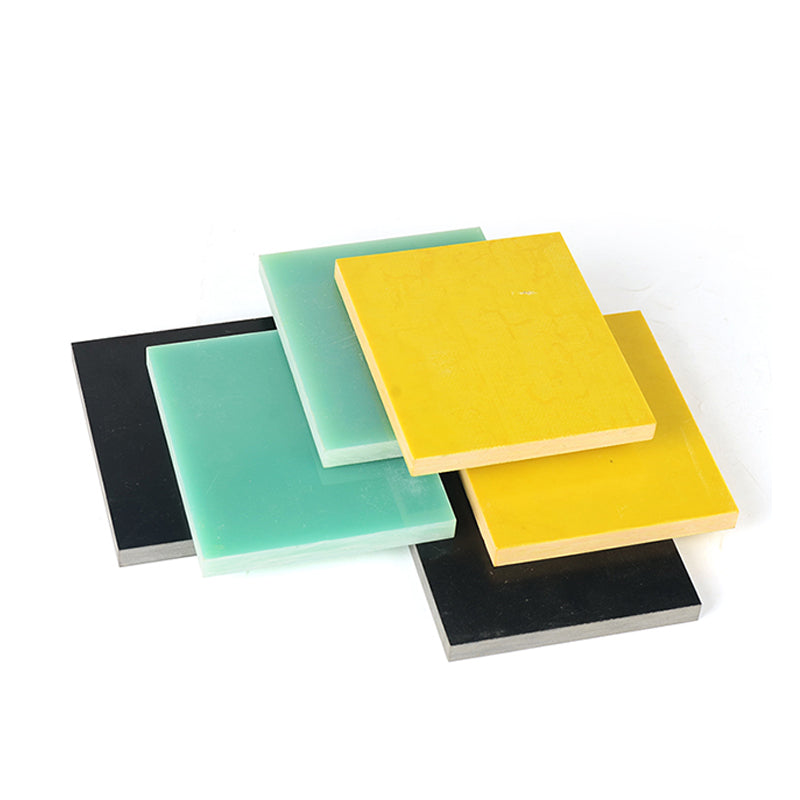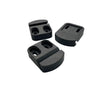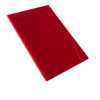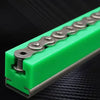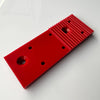Nylon Blocks Unleashed: From Cast Nylon to CNC Machined Marvels
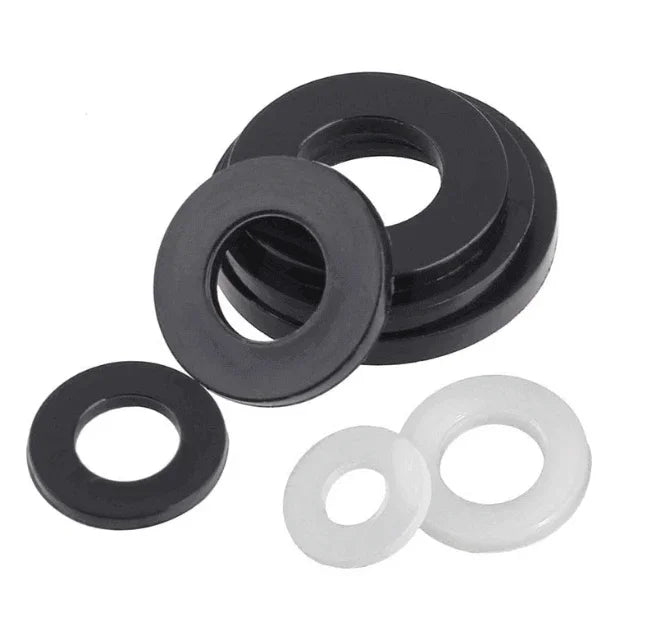
Getting to Know Nylon Blocks
Let’s dive deep into the fascinating world of nylon blocks! These tough, versatile plastic components are used in everything from cars to construction machinery. They’re like the Swiss Army knife of materials—strong, adaptable, and full of surprises. By the end of this guide, you'll understand why nylon blocks are the MVPs of modern industry. Spoiler alert: they’re awesome, and their versatility just might blow your mind.
🎉🎉🎉Limited Time Offer Use code: QR4GNY08SHVR at checkout and enjoy a special discount on your entire order! 👉 Nylon plastic

Understanding Nylon Blocks
What are Nylon Blocks?
Imagine a plastic brick, but one that works tirelessly without complaining. That’s a nylon block for you—strong, wear-resistant, and perfect for taking on tough jobs. Whether it’s automotive parts or heavy-duty construction equipment, nylon blocks get things done. They’re like that one friend who never says no when you need a hand, always dependable and ready to go.
Nylon is a synthetic thermoplastic polymer with a knack for toughness. These blocks come in all shapes and sizes, making them incredibly adaptable. Whether they’re used as gears, bearings, or structural components, nylon blocks deliver consistent performance every time. Plus, they can be machined to precise dimensions, which makes them indispensable for industries needing accuracy and reliability.
Properties and Benefits of Nylon Blocks
-
Durability: If nylon blocks were superheroes, they’d be Captain Durability. They don’t crack, warp, or quit—even under extreme stress. Perfect for when things get heavy, whether it's lifting loads or dealing with constant impact.
-
Versatility: Need something molded or machined into a weird shape? Nylon’s got you. From car parts to massive industrial machinery, nylon’s flexibility means it can handle whatever you throw at it. It’s like the chameleon of materials—able to adapt and perform, no matter the setting.
-
Chemical Resistance: Ever heard of a material that just shrugs off chemicals like they’re no big deal? That’s nylon. It laughs in the face of oils, solvents, and other industrial nasties. Whether it’s in an engine or in a chemical plant, nylon stays tough without breaking a sweat.
Material Variants: Nylon 6 and Cast Nylon
-
Nylon 6: Think of Nylon 6 as the nimble gymnast—flexible, resilient, and ready for action. It’s great for dynamic parts like gears and bushings that need to handle some impact. Nylon 6 is also highly impact-resistant, making it ideal for applications where a balance of toughness and flexibility is essential.
-
Cast Nylon: Cast Nylon is the bodybuilder of the group. It’s got extra strength and thermal stability, perfect for those heavy-duty jobs where you need something that won’t break a sweat. This material is particularly suitable for larger, robust components that need to withstand intense pressure or heavy loads without losing their shape.

Custom Nylon Machining
Introduction to Custom Machining
Transforming nylon blocks into highly precise components is where the magic happens. CNC (Computer Numerical Control) machining is like having a super-accurate robot artist that never misses a detail. It ensures that each nylon component is exactly what it needs to be—no surprises, no deviations.
With CNC machining, you get precision, repeatability, and reliability. It’s how you turn a solid chunk of plastic into a work of engineering art. Imagine the satisfaction of knowing that each gear, bearing, or mechanical part will fit perfectly every time. CNC machining makes that dream a reality, giving manufacturers peace of mind and products that perform.
Benefits of Custom Nylon Machining
-
Precision and Flexibility: Custom machining means a perfect fit, every time. This is crucial for mechanical assemblies where precision can make or break a system. With CNC machining, nylon blocks can be shaped to match incredibly detailed specifications, making them fit seamlessly into even the most complex assemblies.
-
CNC Machined Nylon Components: CNC machines can make identical parts all day long. This consistency is key for industries like aerospace and automotive, where safety depends on every part being just right. CNC machining doesn’t just ensure accuracy—it also means fewer errors, less waste, and ultimately more cost-effective production.
Commonly Machined Nylon Parts
Nylon blocks are often transformed into mechanical transmission parts, bushings, and gears. Imagine a gear that doesn’t squeak, doesn’t need constant greasing, and makes your machinery run quietly—nylon gears do all that and more. Plus, nylon bushings reduce friction, which keeps everything running smoothly and extends the life of your machinery. Imagine fewer headaches and more efficiency—now that’s something every industry can get behind.
Applications of Nylon Blocks
Nylon Gears Manufacturing
-
Advantages of Nylon in Gear Manufacturing: Metal gears are noisy, need a ton of grease, and are heavy. Nylon gears are the cool, quiet, low-maintenance alternative. Less noise, less weight, and less fuss—what’s not to love? The self-lubricating properties of nylon mean fewer maintenance cycles and fewer disruptions to productivity.
-
Case Study: A manufacturer swapped out metal gears for nylon and immediately noticed less noise, better efficiency, and fewer maintenance headaches. It’s like the machinery took a relaxing vacation. The overall operational costs dropped too, thanks to nylon’s low maintenance requirements and reduced downtime.

Mechanical Transmission Parts
-
Role of Nylon Blocks in Transmission: Nylon blocks help absorb shocks and reduce the load on machinery, which means smoother operation and better fuel efficiency. Their lightweight nature also reduces overall system stress, contributing to longer-lasting machinery.
-
Use Cases: Nylon is found in automotive transmissions and conveyor systems, keeping energy consumption low and operations smooth as butter. Whether you need components for agriculture, packaging, or car engines, nylon plays an important role in ensuring everything runs without a hitch.
Comparison of Nylon Types
Nylon 6 vs. Cast Nylon
-
Material Differences: Nylon 6 is the tough, impact-resistant one, ideal for moving parts. Cast Nylon is the heavyweight champ, stable and perfect for bigger, robust components. The production processes give them unique qualities—Nylon 6 is extruded, while Cast Nylon is molded, leading to enhanced strength for heavy-duty applications.
-
Application Suitability: Nylon 6 is best for dynamic environments, where flexibility and shock absorption are critical. Cast Nylon thrives in heavy-duty, stability-needed jobs, such as crane pads, large rollers, and heavy machinery parts that need to resist deformation under load.
Advantages of CNC Machined Nylon Components
Precision and Efficiency
CNC machining ensures nylon components are produced with high precision. This is critical for parts that need to fit perfectly and perform reliably. The repeatability of CNC machining also means that you get identical components, which is especially important in industries like aerospace, where even minor deviations can cause major issues.

Customization Potential
CNC machining allows for custom features, making nylon components perfect for industries like automotive, aerospace, and heavy machinery. Need a part that fits just right? CNC’s got you covered. Custom grooves, slots, and complex geometries can all be created with CNC, allowing manufacturers to meet exacting standards and create unique solutions for complex problems.
Why Choose Nylon Blocks for Mechanical Applications
Cost-Effectiveness
Nylon blocks are cheaper than metals and easier to machine, which cuts production time and costs. Their lightweight nature also reduces strain on machinery, extending its lifespan. Bonus: they’re resistant to corrosion, which means they last longer and need fewer replacements. In industries where margins are tight, this can make a big difference to the bottom line.
Using nylon blocks instead of metal can lead to significant cost savings in both the short and long term. Not only is the material itself less expensive, but the reduced maintenance needs and lower energy consumption also add up to big savings over time. The fact that nylon components are resistant to corrosion also means they last longer, reducing the need for frequent replacements.
Enhanced Durability
Nylon blocks are built to handle continuous contact, friction, and mechanical stress. They’re like the shock-absorbing cushion your machinery needs, reducing downtime and keeping everything running smoothly. Imagine fewer breakdowns, fewer trips to the repair shop, and more time focusing on what really matters—getting the job done.
The durability of nylon blocks also means fewer breakdowns and less downtime, which is a huge advantage for industries where time is money. In high-stress applications like conveyor belts, robotic arms, or heavy equipment, nylon components can significantly extend the operational life of machinery, providing a reliable solution that minimizes interruptions.
Case Example
Take it from the automotive manufacturers who made the switch from metal to nylon. They’ve seen significant improvements in efficiency, a reduction in maintenance costs, and better fuel efficiency. By reducing the weight and the need for constant lubrication, nylon components have made life a lot easier. Imagine fewer trips to the mechanic and more time getting things done—that’s the power of nylon.
In one notable case, a major automotive supplier replaced traditional metal bushings with nylon ones, leading to a reduction in vehicle weight and an increase in overall fuel efficiency. Not only did this change improve performance, but it also contributed to the company’s sustainability goals by lowering emissions and reducing the frequency of maintenance intervals.
Wrapping It Up: The Power of Nylon Blocks
Nylon blocks might not be flashy, but they’re definitely fantastic. They’re versatile, durable, and can be shaped to fit just about any industrial need. From gears to bushings to mechanical transmission parts, nylon is the go-to solution that won’t let you down. And when it comes to customization, CNC machining turns these humble blocks into precision-engineered components that are ready for whatever the job demands.

Whether you’re in automotive, manufacturing, or heavy machinery, nylon blocks are a cost-effective, reliable choice. So, if you want to boost efficiency, reduce maintenance, and keep things running smoothly, nylon blocks are the way to go. Got questions about custom nylon machining or need CNC machined nylon components? We’re here to help. Our team of experts is ready to find the best solution for you—because when it comes to nylon, we know our stuff.
🎉🎉🎉Limited Time Offer Use code: QR4GNY08SHVR at checkout and enjoy a special discount on your entire order! 👉 Nylon plastic
-
Posted in
automotive components, Cast Nylon, CNC machining, Custom Nylon Parts, industrial applications, Machining Precision, mechanical transmission, Nylon 6, nylon blocks, nylon gears

